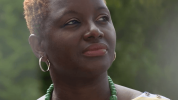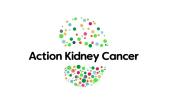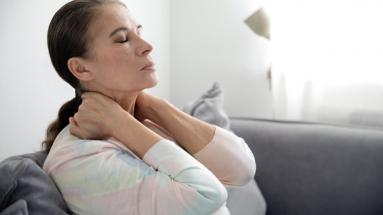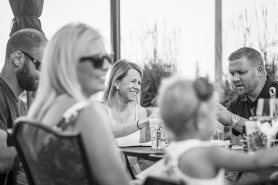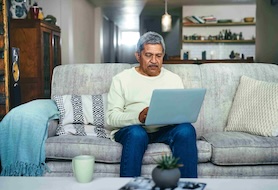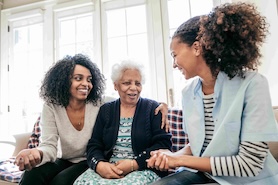References
1. Bootsma. TI, Schellekens MP, vanWoezik RAM, van der Lee ML, Slatman J (2020). Experiencing and responding to chronic cancer‐related fatigue: A meta‐ethnography of qualitative research. Psycho‐Oncology, 29:241‐250. https://doi.org/10.1002/pon.5213 (last accessed August 2022).
2. Bower, J. E. (2014). Cancer-related fatigue—mechanisms, risk factors, and treatments. Nature reviews Clinical oncology, 11(10), 597. https://doi.org/10.1038/nrclinonc.2014.127 (last accessed August 2022).
3. Levkovich, I., Cohen, M., & Karkabi, K. (2019). The experience of fatigue in breast cancer patients 1–12 month post-chemotherapy: A qualitative study. Behavioral Medicine, 45(1), 7-18. https://doi.org/10.1080/08964289.2017.1399100 (last accessed August 2022).
4. Mustian, K. M., Alfano, C. M., Heckler, C., Kleckner, A. S., Kleckner, I. R., Leach, C. R., ... & Miller, S. M. (2017). Comparison of pharmaceutical, psychological, and exercise treatments for cancer-related fatigue: a meta-analysis. JAMA oncology, 3(7), 961-968. https://doi.org/10.1001/jamaoncol.2016.6914 (last accessed August 2022).
5. Hilfiker, R., Meichtry, A., Eicher, M., Balfe, L. N., Knols, R. H., Verra, M. L., & Taeymans, J. (2018). Exercise and other non-pharmaceutical interventions for cancer-related fatigue in patients during or after cancer treatment: a systematic review incorporating an indirect-comparisons meta-analysis. British journal of sports medicine, 52(10), 651-658. https://dx.doi.org/10.1136/bjsports-2016-096422 (last accessed August 2022).
6. Mosher, C. E., Secinti, E., Li, R., Hirsh, A. T., Bricker, J., Miller, K. D., ... & Johns, S. A. (2018). Acceptance and commitment therapy for symptom interference in metastatic breast cancer patients: a pilot randomized trial. Supportive Care in Cancer, 26(6), 1993-2004. https://doi.org/10.1007/s00520-018-4045-0 (last accessed August 2022).
7. Hilfiker, R., Meichtry, A., Eicher, M., Balfe, L. N., Knols, R. H., Verra, M. L., & Taeymans, J. (2018). Exercise and other non-pharmaceutical interventions for cancer-related fatigue in patients during or after cancer treatment: a systematic review incorporating an indirect-comparisons meta-analysis. British journal of sports medicine, 52(10), 651-658. https://dx.doi.org/10.1136/bjsports-2016-096422 (last accessed August 2022).
8. Bootsma, T. I., Schellekens, M. P., van Woezik, R. A., van der Lee, M. L., & Slatman, J. (2020). Experiencing and responding to chronic cancer‐related fatigue: A meta‐ethnography of qualitative research. Psycho‐Oncology, 29(2), 241-250. https://doi.org/10.1002/pon.5213 (last accessed August 2022).
9. Silva, E. H, Lawler, S., & Langbecker, D. (2019). The effectiveness of mHealth for self-management in improving pain, psychological distress, fatigue, and sleep in cancer survivors: a systematic review. Journal of Cancer Survivorship, 13(1), 97-107. https://doi.org/10.1007/s11764-018-0730-8 (last accessed August 2022).
10. Corbett, T. K., Groarke, A., Devane, D., Carr, E., Walsh, J. C., & McGuire, B. E. (2019). The effectiveness of psychological interventions for fatigue in cancer survivors: systematic review of randomised controlled trials. Systematic reviews, 8(1), 1-30. https://doi.org/10.1186/s13643-019-1230-2 (last accessed August 2022).
11. NHS UK. How to get to sleep (22 July 2019). https://www.nhs.uk/live-well/sleep-and-tiredness/how-to-get-to-sleep/ (last accessed August 2022).
12. Sleep Foundation.org. Sleep Hygiene. (March, 2022). https://www.sleepfoundation.org/sleep-hygiene (last accessed August 2022).
13. Sleep Foundation.org. Napping. (March, 2022). https://www.sleepfoundation.org/sleep-hygiene/napping (last accessed August 2022).
14. Mustian, K. M., Alfano, C. M., Heckler, C., Kleckner, A. S., Kleckner, I. R., Leach, C. R., ... & Miller, S. M. (2017). Comparison of pharmaceutical, psychological, and exercise treatments for cancer-related fatigue: a meta-analysis. JAMA oncology, 3(7), 961-968. https://doi.org/10.1001/jamaoncol.2016.6914 (last accessed August 2022).
15. Wu, C., Zheng, Y., Duan, Y., Lai, X., Cui, S., Xu, N., ... & Lu, L. (2019). Nonpharmacological interventions for cancer‐related fatigue: a systematic review and Bayesian network meta‐analysis. Worldviews on Evidence‐Based Nursing, 16(2), 102-110. https://doi.org/10.1111/wvn.12352 (last accessed August 2022).
16. Packel, L. (February 5, 2021). Strengthening During and After Cancer. Oncolink.org. https://www.oncolink.org/support/exercise-cancer/strengthening-during-and-after-cancer (last accessed August 2022).
17. Maggies. 2022. Personal Relationships. https://www.maggies.org/cancer-support/managing-socially/personal-relationships-and-cancer/?edit_off=true (last accessed August 2022).
18. Abrahams, H. J. G., Gielissen, M. F. M., Verhagen, C. A. H. H. V. M., & Knoop, H. (2018). The relationship of fatigue in breast cancer survivors with quality of life and factors to address in psychological interventions: a systematic review. Clinical psychology review, 63, 1-11. https://doi.org/10.1016/j.cpr.2018.05.004 (last accessed August 2022).
19. Royal College of Psychiatrists. 2022. Sleeping well. Sleeping well | Royal College of Psychiatrists (rcpsych.ac.uk) (last accessed August 2022).

